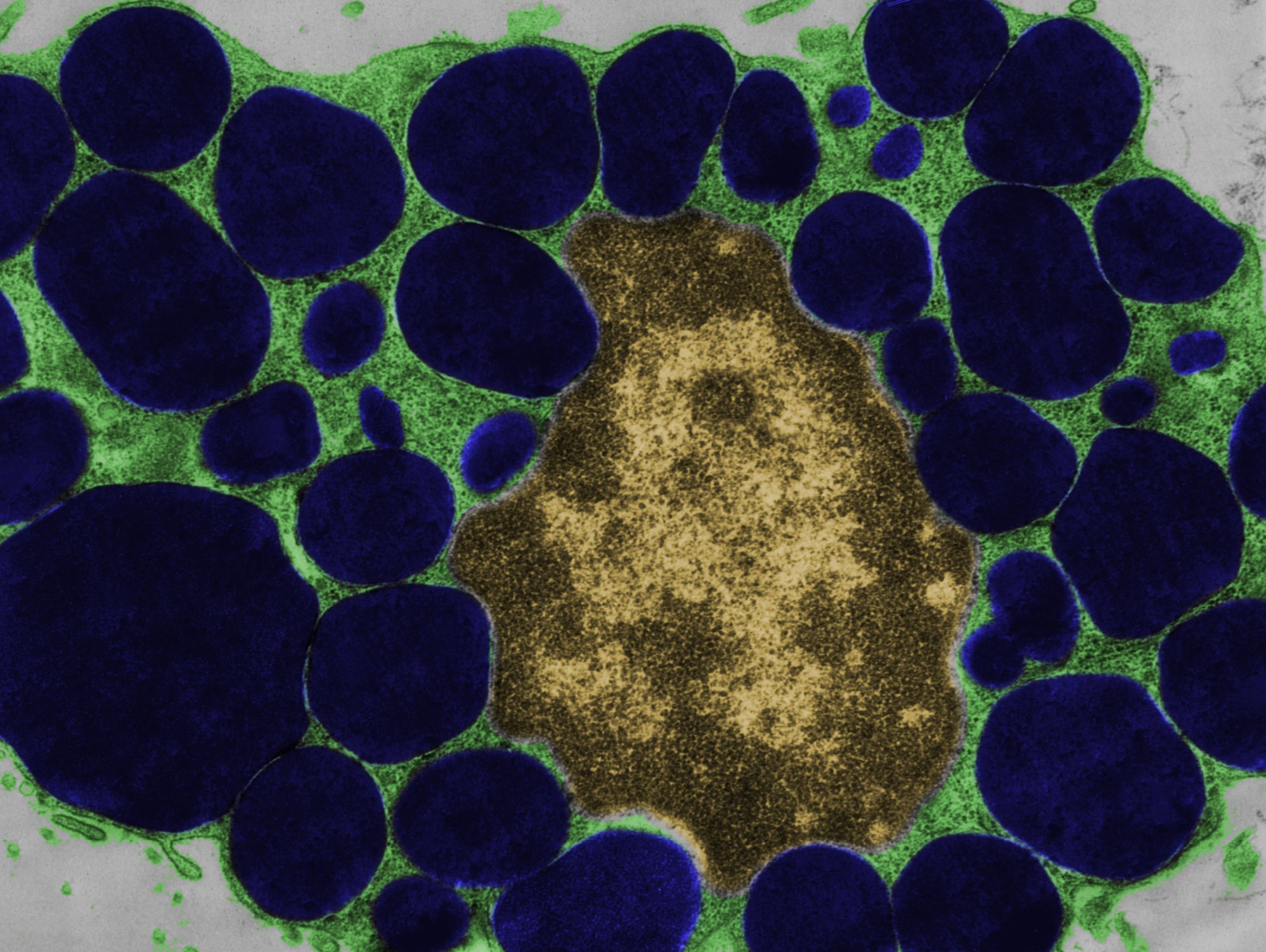To date, there is no causal therapy for Alzheimer’s dementia approved in Europe. This makes the treatment of accompanying symptoms all the more important. Here, the focus is particularly on the relatively frequent apathy, which makes it difficult for the affected person to cooperate therapeutically and can significantly increase the risk of mortality as well as the burden on caregivers. A study [1] now evaluated the psychostimulant methylphenidate for efficacy on apathy in AD patients and was able to confirm significant beneficial effects as well as the safety of the drug.
In Germany, 1.6 million (50 million worldwide) people suffer from dementia – in 30 years, it will be up to 2.8 million [2]. Alzheimer’s dementia is the most common; prevalence is 1-5% between the ages of 56 and 70. This number doubles with each 5-year increment [3], affecting up to 10% of 70-75 year olds and up to 20% of 75-80 year olds. The disease is accompanied by the deterioration of various brain functions, in particular memory disorders, so that the activities of daily living of the affected person continue to decline in the course of time until independent living is no longer possible.
In parallel with a large increase in knowledge about the pathomechanisms (e.g., deposition of tau protein and beta-amyloid in the brain), it is now considered proven that about one third of all cases of the disease are related to modifiable risk factors [4, 5]: In addition to age per se, these include smoking, hypertension, diabetes mellitus, elevated blood lipids (hyperlipidemia), obesity, depression, social isolation/loneliness, and lack of exercise. Lack of physical activity even has the greatest significance, as a German study from 2016 [6] showed.
Neuropsychiatric symptoms may also occur as part of Alzheimer’s disease, one of the most common being apathy. Affected individuals exhibit decreased drive, loss of empathy, and loss of interest, which further exacerbates disability and increases the burden on caregivers or the burden of care (and thus treatment costs) and mortality. Some treatment studies have shown no effect to date (e.g., [7]).
Apathy is addressed by treatment with methylphenidate, a psychostimulant otherwise used to treat attention-deficit/hyperactivity disorder (ADHD) and narcolepsy. Smaller studies showed favorable effects on apathy in Alzheimer’s patients, so now the ADMET-2 study (“Apathy in Dementia Methylphenidate Trial 2″), a multicenter, randomized, blinded, placebo-controlled Phase III study has evaluated the substance in a larger number of affected individuals. From 2016 to 2020, 307 people with Alzheimer’s disease were screened at one Canadian and seven specialized dementia centers in the United States, of whom 200 were enrolled in the study. Participants had mild to moderate cognitive impairment and exhibited frequent or severe apathy states (as measured by a specialized dementia questionnaire, the NPI/”Neuropsychiatric Inventory”). 99/200 participants received methylphenidate (10 mg orally 2 times daily) and 101/200 placebo for six months. Median age was 76 years (IQR 71-81), 66% were male. Outcome included (1) changes in initial apathy NPI score or (2) improvement in Alzheimer’s disease score ADCS-CGIC (“Alzheimer’s Disease Cooperative Study-Clinical Global Impression of Change”; scores of 1-7, with higher scores being worse). Other endpoints included changes in cognitive abilities, quality of life, and safety profile.
As a result, there were significant improvements in apathy score after six months in the methylphenidate group compared to the placebo group (mean NPI difference -1.25; p=0.002). Methylphenidate most significantly improved the score in the first 100 days (HR 2.16 for complete disappearance of apathy symptoms, p=0.01). The ADCS score also improved almost twice as often in the methylphenidate group (OR 1.9; p=0.07): The difference in mean change in ADCS-CGIC over the study period was 1.43 (p=0.048). There was no change in cognitive tests or quality of life in either group. Of 17 serious adverse events, none were related to study drug; the safety profile was good in both groups. More participants in the active drug group (10 vs. 6) reported weight loss greater than 7% during the study.
“Since there is still no causal Alzheimer’s therapy approved in Europe, treatment must also address all risk factors and accompanying symptoms. According to these study data, methylphenidate is an effective and safe option for the treatment of apathy,” emphasizes Prof. Dr. Richard Dodel, Essen. “Social isolation and lack of exercise are mutually dependent and reinforcing drivers of dementia. Symptoms such as depression and apathy prevent cooperation – but especially in the early stages of the disease, it is important for those affected to exercise or play sports, remain mobile and enterprising, and have social contacts, because this can influence the progression of dementia.”
[1] Mintzer J, Lanctôt KL, Scherer RW et al. Effect of Methylphenidate on Apathy in Patients With Alzheimer Disease: The ADMET 2 Randomized Clinical Trial. JAMA Neurol 2021 Nov 1;78(11):1324-1332. doi: 10.1001/jamaneurol.2021.3356.
[2] Website
:
https://www.nationale-demenzstrategie.de/
Brochure:
https://www.nationale-demenzstrategie.de/fileadmin/nds/pdf/2020-07-01_Nationale_…
[3] Hacke, Werner (ed.) Neurology. Springer-Verlag 2016, p. 649 ff.
[4] Livingston G, Sommerlad A, Orgeta V et al. Dementia prevention, intervention, and care. Lancet 2017; 390 (10113): 2673-2734
[5] Norton S, Matthews FE, Barnes DE et al. Potential for primary prevention of Alzheimer’s disease: an analysis
of population-based data. Lancet Neurol. 2014; 13 (8): 788-94
[6] Luck T, Riedel-Heller SG. Prevention of Alzheimer’s dementia in Germany: A projection of the possible
potential of reducing selected risk factors. Neurologist 2016 Nov; 87 (11): 1194-1200
[7] Maier F, Spottke A, Bach JP et al. Bupropion for the Treatment of Apathy in Alzheimer Disease: A Randomized Clinical Trial. JAMA Netw Open. 2020 May 1;3(5):e206027. doi: 10.1001/jamanetworkopen.2020.6027.
Original publication:
doi: 10.1001/jamaneurol.2021.3356











